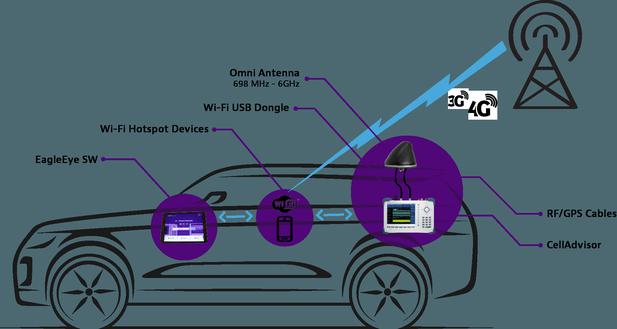Hydrogenation atom
based hydrogen atom (hydrogen-like atom) has only one electron atom, a hydrogen atom is isoelectronic with, e.g., He + , Li 2+ , Be 3 + and B 4 + type, etc. are a hydrogen atom, also known as "hydrogen ion type." Class contains only a hydrogen atom and an electron nucleus, is a simple two-body system, biasing force within the system is only related with the distance between the two bodies, it is inverse-square central force. This inverse-square central force without the two-body system plus idealistic, simplistic. (Non-relativistic) Schrödinger equation describes this system of analytical solutions, that answer can be expressed in a limited number of common functions. Schrodinger wave function satisfies this equation can be fully described quantum behavior of electrons. In quantum mechanics, a hydrogen atom class issue is a very simple, very practical, and have the analytical solution. The deduced basic physical theory, you can use a simple test to check. So, like hydrogen atom question is a very important issue. 
Schrodinger equation called wave function satisfies the above system is a single-electron wave function, the wave function is a hydrogen atom or a class. Class single hydrogen atom electron wave function is its angular momentum L Operator Operator z- axis component L z eigenfunctions. Since the energy eigenvalues E n with quantum numbers l, m irrelevant, but only related with principal quantum number n. Therefore, the class may be a hydrogen atom wave function by the main quantum number n, L azimuthal quantum number, the magnetic quantum number m is uniquely determined. Because construction principles, must be added to the spin quantum number m s = ± 1/2. For the multi-electron atoms, which limits the principle electronic configuration four quantum numbers. For class a hydrogen atom, all degenerate orbital electron shell is formed of a; each sublayer has its own unique principal quantum number n. This determines the principal quantum number of the energy electron shell.
other than hydrogen atoms (electrically neutral), ions are hydrogen-like atom, are positively charged amount e (Z - 1); wherein, e, Z is the atomic number.
Schrodinger equation
Schrodinger equation for hydrogen-like atom problem
-
-ℏ 2 / (2μ ) ∇ 2 ψ + V (r) ψ = Eψ
wherein, ℏ is the reduced Planck constant, μ is the electron and nuclear the reduced mass, ψ is the wave function of quantum states, E is energy, V (r) is the Coulomb potential:
-
V (r) = - Ze 2 < / sup> / (4πε 0 r)
where, ε 0 is the permittivity of vacuum, Z is atomic ordinal number, e is the unit charge amount, r is the distance of the electron from the nucleus.
using spherical coordinates (r, θ, φ) be the Laplacian Expand:
This conjecture Schrodinger the wave function solutions of the equation ψ (r, θ, φ) is a radial function R nl (r) and the spherical harmonics Y lm (θ, φ) of the product:
angle section
parameters zenith and azimuth angles of the spherical harmonic, corner portions satisfy the equation
where l is a non-negative integer angular momentum quantum number of angular rail. Magnetic quantum number m (satisfying -l≤m≤l) is a rail-to z- axis angular momentum (quantized) projection. Different l and m are given different tracks Angular Momentum Function Solution Y lm :
where, i is the imaginary unit ,
and
radial partial solution
function satisfies a radially one-dimensional Schrodinger equation:
the second term in the equation may be regarded as the left side of the centrifugal force potential, which is the effect of radial distance remote a little.
In addition to the quantum number ℓ and m, there is a principal quantum number n. In order to satisfy R nl (r) of the boundary conditions, it must be positive integers n-energy discretely to level
where,
where,
where l
spin - orbital interaction
electronic total angular momentum must include the spin of the electron. In a true original house, because the electrons surrounding the nucleus move, will feel the magnetic field. Electron spin and magnetic field have an effect, this phenomenon is called spin - orbit effect. When these phenomena included in the calculations, and the spin angular momentum is no longer a conservative, you can imagine this is the precession of the electron. To maintain conservative, quantum number L must be replaced, the spin projection m m s , and quantum numbers j, m j to calculate the total angular momentum.
Fine Structure
in atomic physics, since the first-order relativistic effects, spin - orbit coupling, and spectral lines generated by splitting atoms, referred to Fine Structure .
non-relativistic, the spectrum of spin electrons generated is referred to as a coarse structure. A hydrogen atom rough structural class is only related with principal quantum number n. However, a more accurate model, taking into account the relativistic effects and spin - orbit effects, can decompose degenerate energy levels and make lines more finely split. With respect to the coarse structure is a fine structure (Zα) 2 effects; wherein, Z is the atomic number, [alpha] is the fine structure constant.
in the relativistic quantum mechanics, Dirac equation is used to calculate the electron wave function. With this method, the energy levels with principal quantum number n, the total number of sub j related to the allowable energy
Latest: Yuanfeng Jiu Domeware
Next: Peak power








